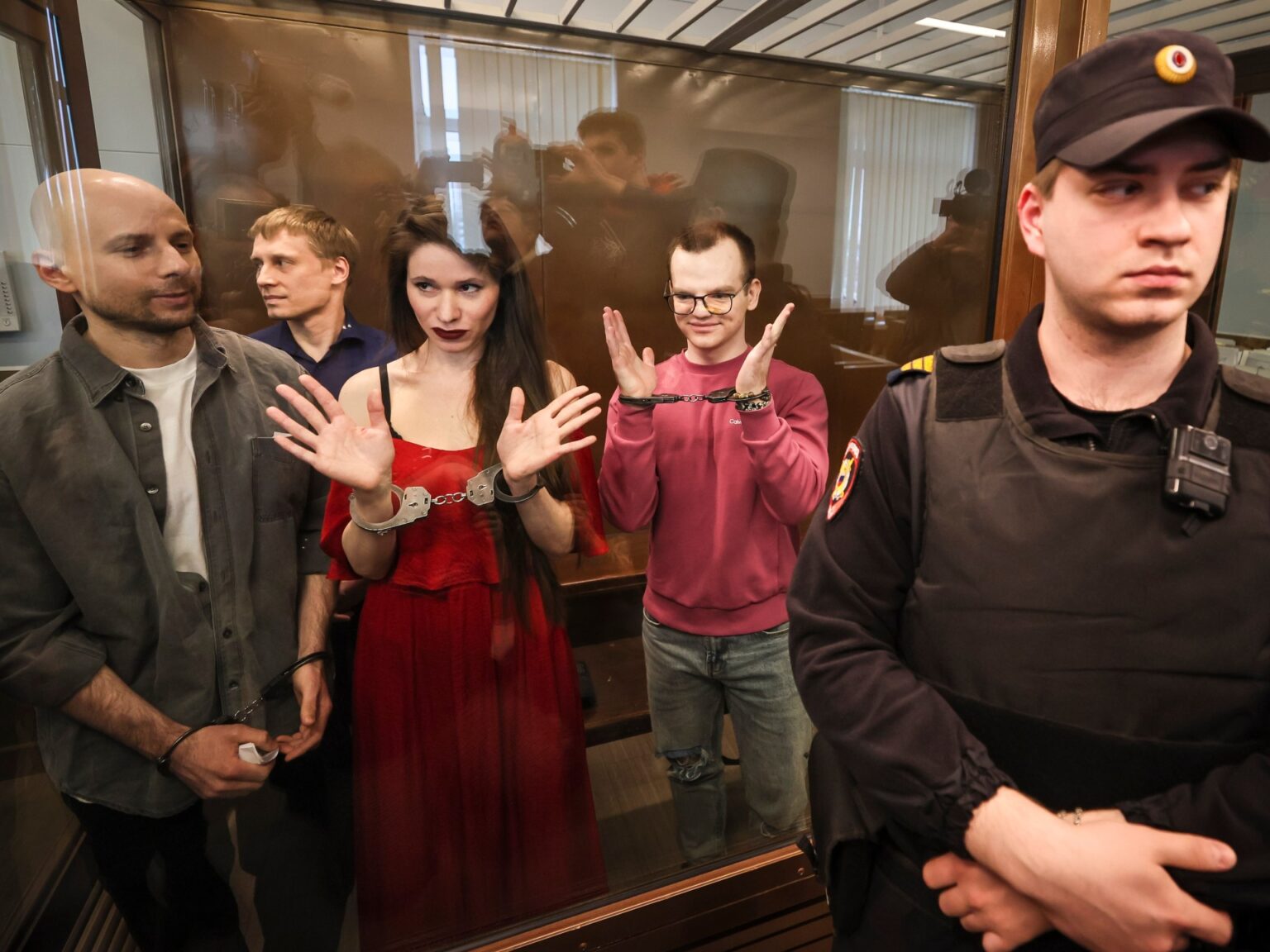A Russian court has sentenced four journalists to five and a half years in prison each after convicting them of “extremism” linked to their alleged work with an organisation founded by the late opposition leader Alexey Navalny.
Antonina Favorskaya, Konstantin Gabov, Sergey Karelin and Artyom Kriger were found guilty on Tuesday by Moscow’s Nagatinsky district court of collaborating with a group designated as extremist by Russian authorities.
All four deny the charges, insisting they are being punished for carrying out their journalistic duties.
The verdict is the latest chapter in Russia’s sweeping crackdown on dissent – an effort that has only intensified since Moscow launched its full-scale invasion of Ukraine in February 2022.
Authorities have moved aggressively against critics of the Kremlin, including political opponents, human rights defenders and independent journalists. Hundreds have been jailed, and thousands have fled the country in fear of prosecution.
Favorskaya and Kriger were both affiliated with SotaVision, a media outlet known for documenting protests and court proceedings. Gabov, a freelance producer, has worked with several international media groups, including the news agency Reuters. Karelin, a freelance video journalist, has contributed to The Associated Press news agency.
Prosecutors accused the four of being involved with Navalny’s Anti-Corruption Foundation, which was outlawed and labelled extremist in 2021 – a move that critics condemned as politically motivated.
Navalny, long seen as President Vladimir Putin’s most formidable critic, gained prominence through his investigations into state corruption. He died in February 2024, aged 47, while serving a 19-year sentence in a remote Arctic prison colony, convicted on charges many said were designed to silence him.
‘I am in prison for my work’
Favorskaya said at an earlier court appearance open to the public that she was being prosecuted for a story she did on abuse Navalny faced behind bars. Speaking to reporters from the defendants’ cage before the verdict, she also said she was punished for helping organise Navalny’s funeral.
Gabov, in a closing statement prepared for court that was published by the independent Novaya Gazeta newspaper, said the accusations against him were groundless and the prosecution failed to prove them.
“I understand perfectly well … what kind of country I live in. Throughout history, Russia has never been different, there is nothing new in the current situation,” Gabov said in the statement. “Independent journalism is equated to extremism.”
In a statement Karelin prepared for his closing arguments that also was published by Novaya Gazeta, he said he had agreed to do street interviews for Popular Politics, a YouTube channel founded by Navalny’s associates, while trying to provide for his wife and a young child. He stressed that the channel wasn’t outlawed as “extremist” and had done nothing illegal.
“Remorse is considered to be a mitigating circumstance. It’s the criminals who need to have remorse for what they did. But I am in prison for my work, for the honest and impartial attitude to journalism, FOR THE LOVE for my family and country,” he wrote in a separate speech for court that also was published by the outlet, in which he emphasized his feelings in capital letters.
Kriger, in a closing statement published by SotaVision, said he was imprisoned and added to the Russian financial intelligence’s registry of “extremists and terrorists” “only because I have conscientiously carried out my professional duties as an honest, incorruptible and independent journalist for 4 1/2 years.”
“Don’t despair guys, sooner or later it will end and those who delivered the sentence will go behind bars,” Kriger said after the verdict.
Supporters who gathered in the court building chanted and applauded as the four journalists were led out of the courtroom after the verdict.
“They will all appeal” their sentences, said Ivan Novikov, the lawyer defending Kriger.
“The sentence is unlawful and unjust,” said a second lawyer for Kriger, Yelena Sheremetyeva.
“No evidence was presented that these guys committed any crimes, their guilt was not proven,” Gabov’s lawyer Irina Biryukova said.

